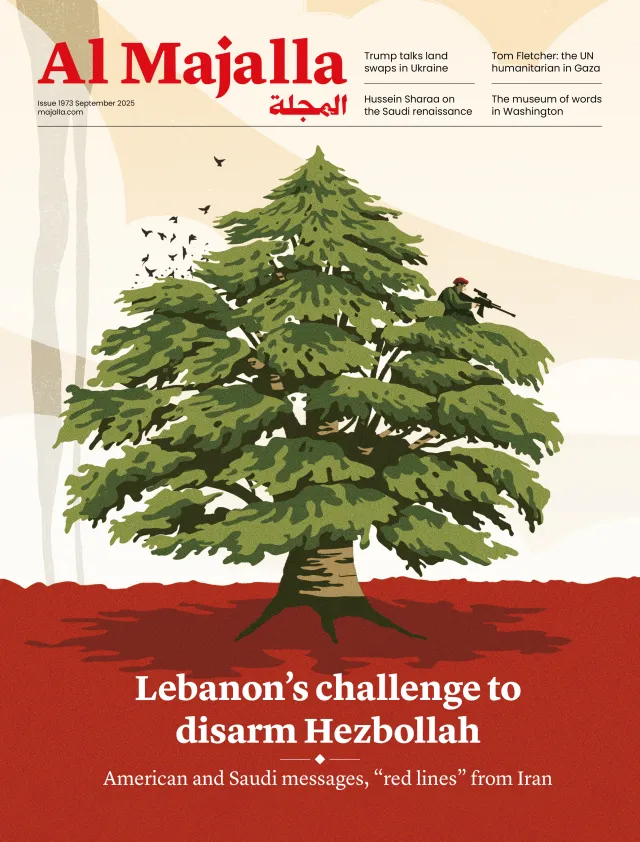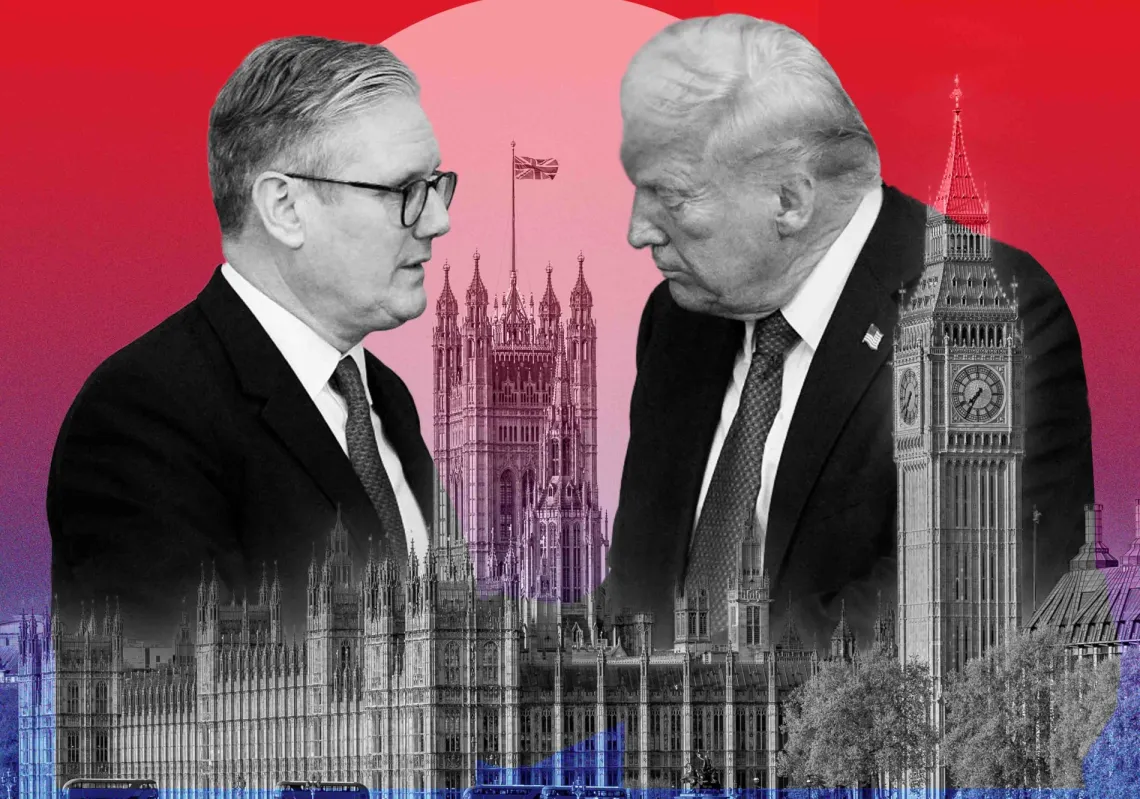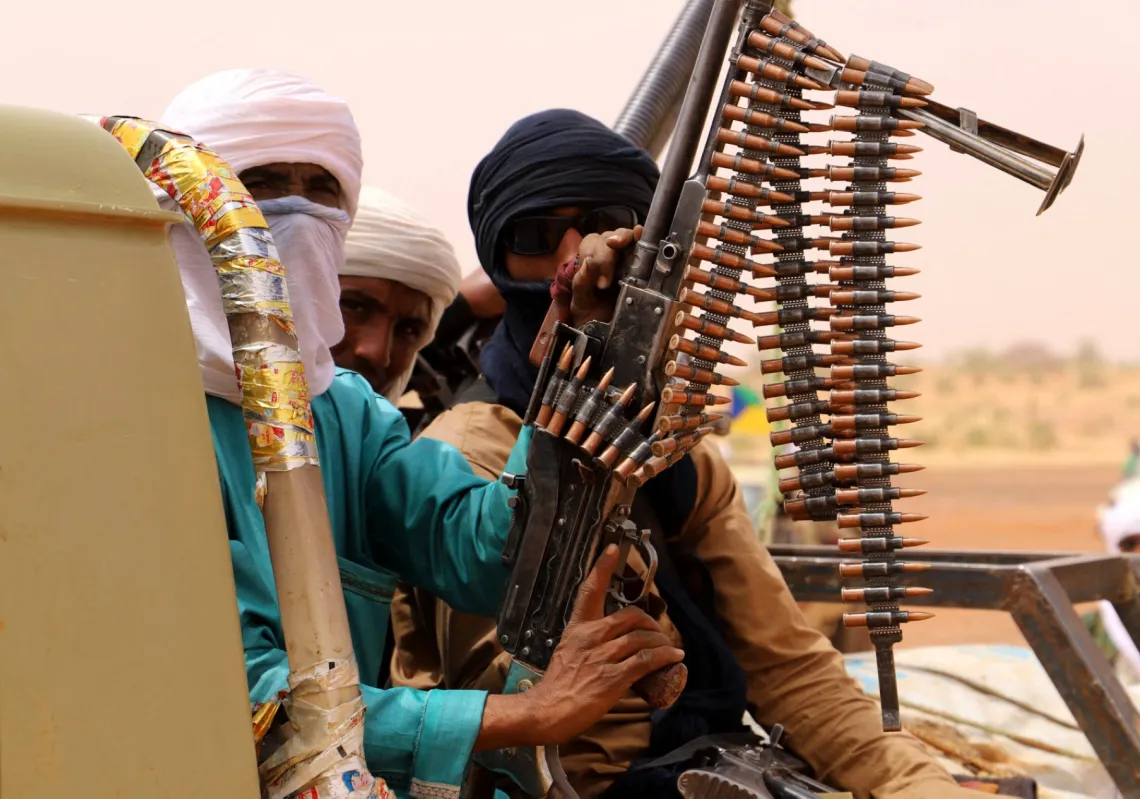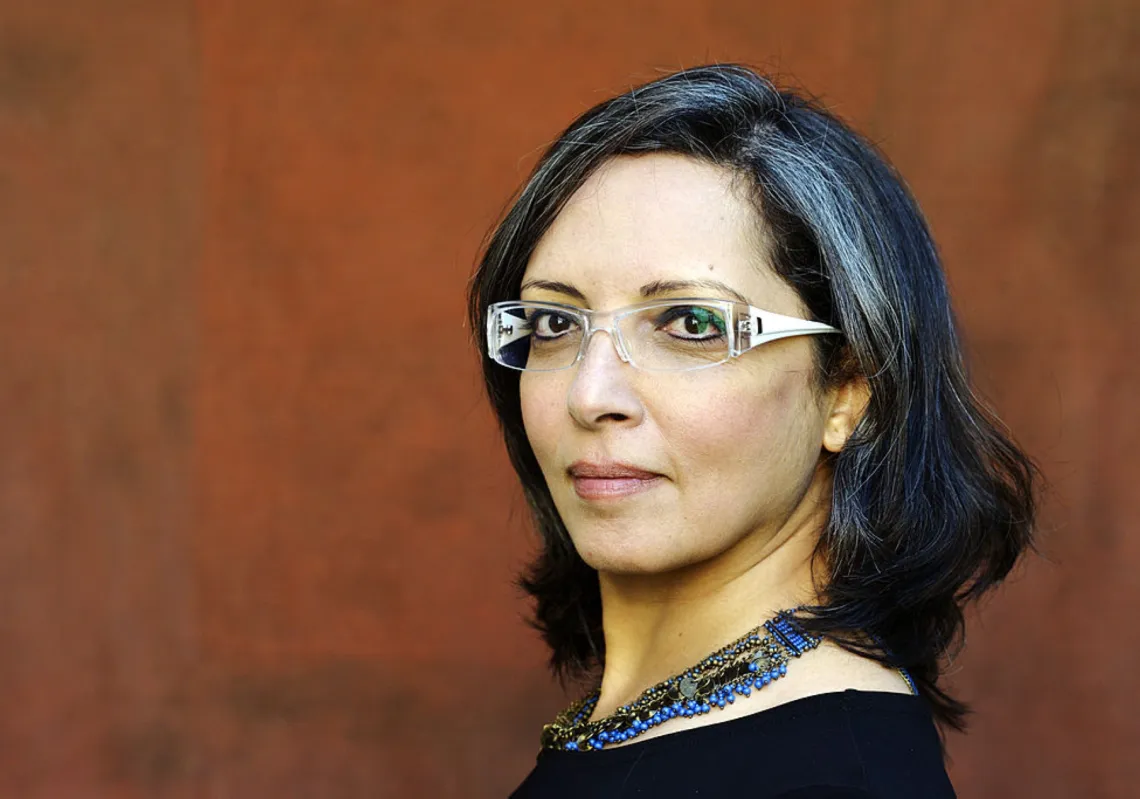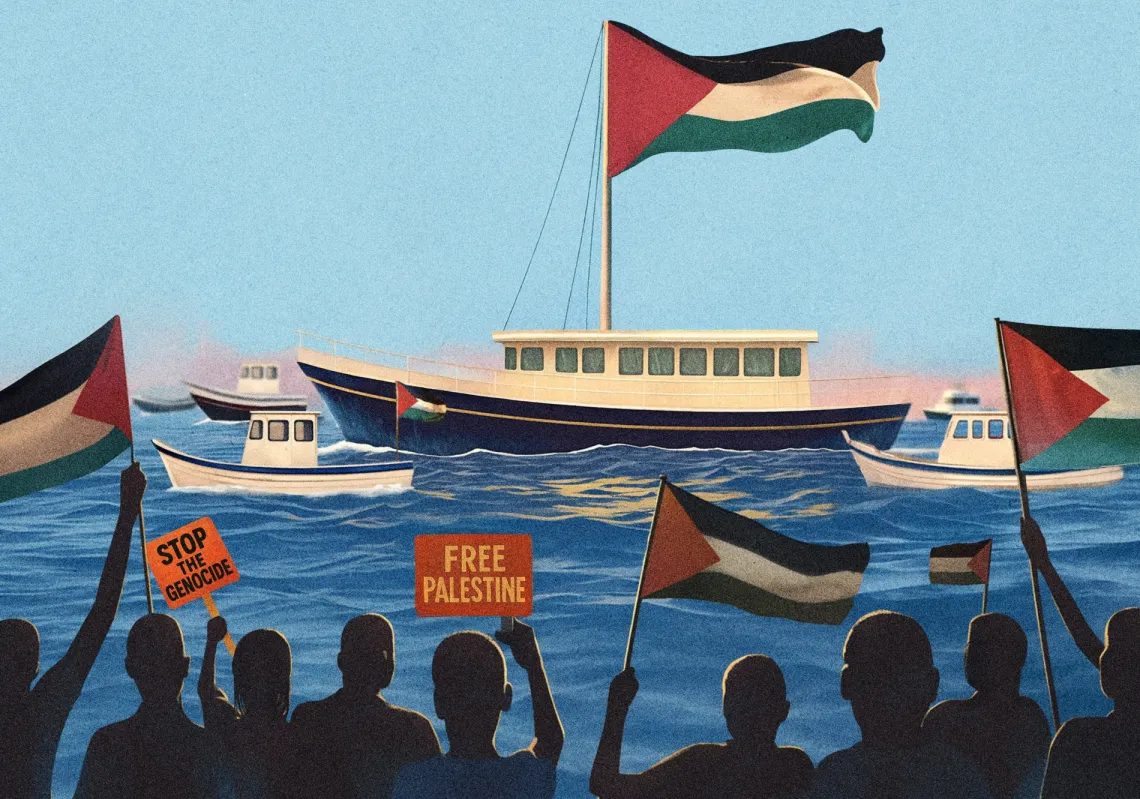Professor Ekmeleddin İhsanoğlu, a Turkish science historian, is currently the secretary general of the Organisation of the Islamic Conference (OIC). In effect, he heads the largest public international organization after the United Nations. Born in Egypt's capital, İhsanoğlu's studies in science took him throughout the Islamic world, culminating in his doctoral training at Ankara University. Since founding the Department of History of Science at Istanbul University, he has focused on culture and academia in the Islamic world. Prior to his current position, he has been a lecturer and visiting professor at the University of Exeter in the United Kingdom, Ankara University, Inonu University and Ludwig Maximilians University of Munich.
Al-Majalla : Whom does the OIC represent: Muslim people or the governments of Muslim countries?
First and foremost, the OIC represents the governments, as its work is to coordinate actions among them. However, it also speaks for the Muslim community, aiming to represent the hopes and ambitions of the Muslim people. According to its charter, the organization is also expected to help Muslim agencies and communities outside its member states, and to assist in maintaining their cultural and religious identity.
Q: Some would say that the OIC is just a “verbal” organization whose role is to issue statements that denounce or condemn?
I think that what the OIC is doing—the consensus of its member states, its role in informing the international public on the stance of the Islamic world— is effective.
Q: It has been argued that the OIC has been undergoing a stage of defeat. What would you say about that?
This is a misguided opinion, because the organization is expressing the desire of the Muslim people to consolidate. The same motive was behind King Faisal's commitment to establish this organization. Thus, it is not a representation of defeat, but rather an emphasis on the willingness to overcome obstacles and bring the Muslim people together.
Q: While the Arab League often contributes to some Arab Islamic issues, the OIC stands with its hands tied before other types of issues. For example, it has not taken action in the internal conflicts in Palestine, Lebanon, Iraq or Somalia. Why?
I do not think that recent developments can make us lose sight of the main achievements of the OIC in this regard. If you read accurately what the organization has done in all these issues, especially Palestine, and reviewed the breakthroughs in December 17th, 2006, you will find that a delegation, which I headed, visited Ramallah, Gaza and Damascus and held meetings with President Mahmoud Abbas, the then-Prime Minister Ismail Haniya and the chairman of Hamas Political Bureau Khaled Meshaal.
The organization was able to achieve the first cease-fire agreement in order to reconcile the Palestinians. Moreover, I visited the Gaza Strip three times, the last of which was shortly after the Israeli war, and was the first visit by a Muslim official to Gaza. During this time we aimed at assessing the needs of the people in Gaza and launching a humanitarian campaign to aid those who were affected by the war.
Again, in the beginning of the war on January 3, 2009, we held an executive committee meeting in our headquarters and issued a resolution calling on the Human Rights Council to send a UN fact-finding mission to Gaza. This mission later issued the Goldstone report. After deferring action on the report, I traveled to Geneva to meet with the UN High Commissioner for Human Rights and made contacts with Muslim countries suggesting the report be endorsed by the council.
The OIC has also worked actively in Somalia: Our direct contact with Sheikh Sharif Ahmed has contributed to his openness to the international community, and has pushed forward the negotiations that led to Djibouti Agreement and the formation of a Somali transitional government.
Perhaps the last meeting of the international communications team concerned with Somalia, which was hosted by the OIC at its headquarters, has tangibly represented the realization of our responsibility in establishing peace and security in Somalia. In addition, we will send a humanitarian mission to Mogadishu in the near future hoping to transform it to a permanent office at the appropriate time.
Q: Is it reasonable that Islamic sectarian conflicts escalate, while the OIC is far from taking any practical step to reunite Muslims?
The OIC has played an effective role in the historic reconciliation between Sunnis and Shiites in Iraq; it has succeeded in issuing the Mecca Declaration on the Iraqi Situation in October 2006, which has contributed in the reconciliation of the religious sects in Iraq. This document prohibits and criminalizes murdering Muslims, in addition to calling for the recognition of all eight Muslim sects. The organization is committed to putting this declaration into effect and following up its implementation. We have already made some contacts to reach a common vision and will resume our consultation with the Iraqi government and concerned parties to achieve this goal.
Q: You always call for addressing terrorism, so what are the practical steps taken by the OIC in this regard?
The OIC strongly denounces terrorism as a threat to international peace and security, a contradiction to human rights principles, and a violation to sublime human values. The organization has been calling for collective international action, including the UN and other world organizations, to combat different forms of terrorism, among which is state terrorism.
We have also pushed for the establishment of an international definition for terrorism that differentiates this act from the legitimate struggle of people to decide their destiny and resist a foreign occupation. In addition, we have called for a focus on the roots and real motives of terrorism represented in political injustice, deprivation, poverty and disappointment, as well as implementing the recommendations of the International Anti-terrorism Conference that was held in Riyadh in February 2005, including the approved initiative of the Custodian of the Two Holy Mosques to establish an international anti-terrorism center.
The provisions of the 10-year program of the Mecca summit highlight the necessity of combating terrorism, and similarly, the new charter of the OIC. Moreover, the member states have contributed in formulating the UN Global Counter-Terrorism Strategy in 2006, which included holding a joint international conference on terrorism in Tunisia in coordination with the Islamic Educational, Scientific and Cultural Organization (ISESCO) in November 2007.
Q: You recently announced an agreement between the OIC and the US to reinforce joint efforts between the two parties. What does the OIC expect from this cooperation and what can Washington offer the OIC?
When Secretary of State Hillary Clinton visited the OIC headquarters in Jeddah in February 2010, we held important talks on political conflicts in the Islamic world and the situation in the Middle East. We seek in our relationship with the US to start a new era of constructive and fruitful dialogue between the West and the Islamic world. Perhaps the most prominent need by the Islamic world and the West is to rebuild mutual confidence.
Q: How does the OIC see the US-Iranian issue?
The OIC is following anxiously the international development on the Iranian nuclear file and its dangerous effects on the security and stability of the region. We reiterate the right of all countries, including Iran, to have access to the peaceful use of nuclear energy. We call upon all parties to avoid further escalation and to return to negotiations in order to solve the issue peacefully.
Q: How does the OIC see US military intervention in Afghanistan?
Military action is not a sustainable solution for Afghanistan. There is a need to adopt a comprehensive approach that incorporates the cultural, economic and social aspects of the conflict. The OIC has been active in contributing to the economic and social development and in the reconciliation of Afghanistan.
We have taken significant steps to help the Afghan people by providing humanitarian aid, especially in the health and education sectors. We have supplied Afghan refugees and the internally displaced with potable water. We have contributed to the international efforts of reconstruction.
Q: What has been the impact of King Abdullah Bin Abdul-Aziz on the OIC, considering that your headquarters is located in Jeddah?
I would seize this opportunity to refer to the kingdom's support of the OIC, its interest in bringing the Muslim community together, and its strong support of Muslim nations. The organization is witnessing a golden era under the auspices of King Abdullah and his good government. His support was reflected in his noble initiative in the historic Mecca summit in 2005. The summit approved the Ten-Year Program of Action that has become a beacon for economic and social development, and scientific and technological progress, in addition to his efforts in establishing Islamic solidarity.
Q: Your election as the OIC secretary general for the first time brought optimism for those seeking democracy and reform, but it seems that the wave of democracy has faded since then?
I think it was right to be optimistic, and many reforms have been implemented since. The new charter reflects these objectives with its provisions calling on member states to "promote good governance, democracy, human rights, fundamental freedoms and rule of law." The organization has also established a human rights agency on the level of the member states, and its statute will be endorsed in the next ministerial meeting. In addition, the OIC affirms the concept of elections and its mechanism in our process of decision making. We ensure that the election of the secretary general is not subject to influence from his home country. We have also been successful in applying transparency measures to the finances of the organization, which have increased the countries’ confidence and support of the OIC.
Q: When you were first elected there were hopes that, as the first Turkish secretary general, the OIC would witness a modernization. Has this occurred?
In the framework of modernization, the OIC has worked hard recently to launch new departments and activities, such as the humanitarian department, which opens the door for humanitarian aid, relief and development. We have also increased the rate of trade among member states from 14 percent to more than 16 percent in 2008, and expanded trade through the trade preferential agreement. We have encouraged scientific research, and have established in the cultural department the Islamophobia Observatory, which monitors violations against Muslims and Muslim symbols, as well as the Cairo-based women's council, among other programs.
Q: How has your position as the head of the OIC affected Turkey's role as a major regional member state? Some accuse you of representing the official Turkish vision, do you agree?
I represent the consensus of the member states, and no secretary general can take action without this consensus represented in the resolutions issued by Islamic summits and ministerial meetings. In other words, all the organization’s activities must come in accordance with the resolutions taken by the member states in their regular meetings. As for the Turkish role you mentioned, it has come as a result of its bilateral ties with neighboring and member countries.
Q: You were unanimously re-elected as the OIC secretary general, how do you account for this support?
I was elected according to the old charter in 2005 for four years, and my first term ended in 2008. For the first time in the OIC, the summit, not the council of foreign ministers, has re-elected me for a second term, unanimously. I feel very honored by the words of Prince Saud Al-Faisal said on behalf of King Abdullah Bin Abdul-Aziz at the Dakar summit. He praised me when he supported my re-election for a second term saying, "If Turkey—nation, people, and civilization—has gifted the OIC with Ekmeleddin İhsanoğlu, this righteous son, when we were in a dire need for his vision and leadership, the Kingdom of Saudi Arabia calls on the blessed gathering on this blessed day of this blessed month to make this gift available for the Islamic nation by approving his re-election for a second term. Thus, we can resume the implementation of the plan of action set out by the extraordinary Mecca summit and the reforms that we have started in order to make the joint Islamic action stand against the challenges facing our Islamic nation in the 21st century." In the same speech, Prince Saud Al-Faisal said, "I would not preview the achievements of this man, Ekmeleddin İhsanoğlu, throughout the past three years, because they are uncountable, but it is necessary to refer to his role in the Ten-Year Program of Action, which the OIC and our nation should truly be proud of." (Quoted from Prince Saud Al-Faisal's speech at the Dakar summit).
Interview conducted by Shereen Alfaedy

